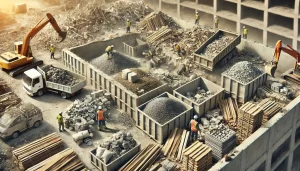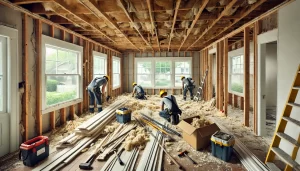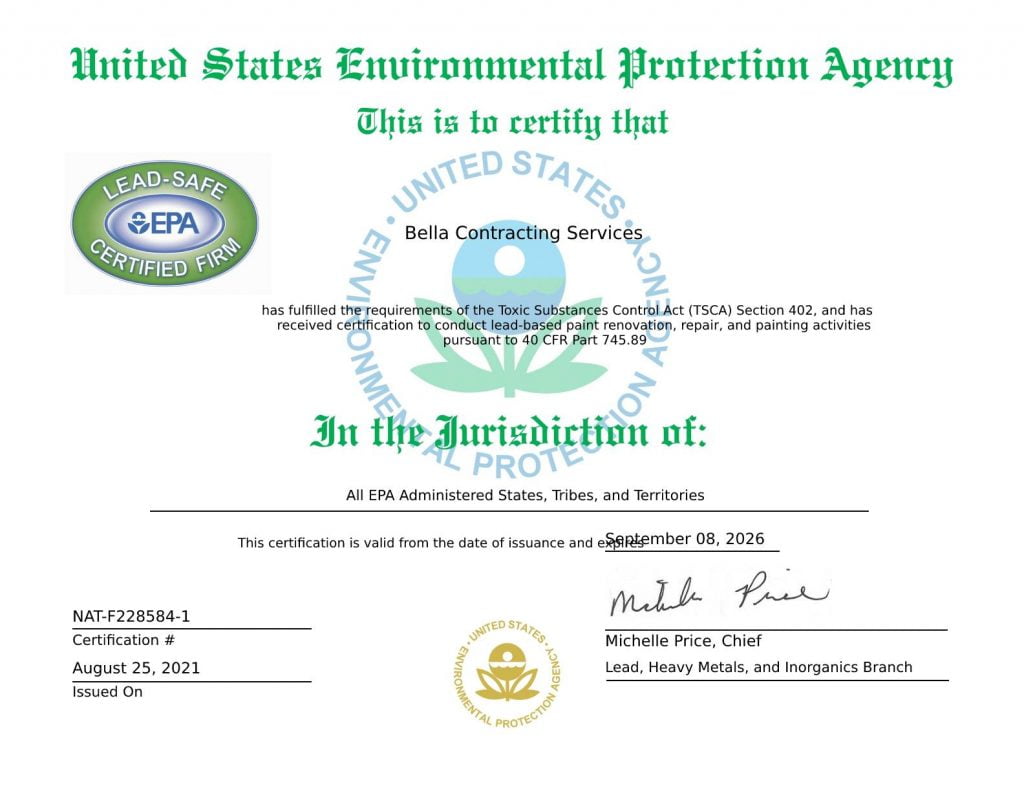Many demolition companies offer both demolition and excavation services for specific contracting jobs. While both are important during construction, many individuals don’t realize the difference. Understanding the differences between demolition and excavation can help determine which service will be required for specific jobs.
Here’s some information about the two services and what they can do for you:
What Is Demolition?
According to the Infrastructure Health & Safety Association, demolition is considered the act of tearing down buildings and structures. The structures can be torn down completely or partially while using controlled methods.
Demolition may include entering the structure and stripping down the interior for a full remodel or preparing for an exterior remodel with external demolition. Some projects might require complete demolition to tear everything down to prepare for a new building.
Different methods and types of demolition can be implemented during these projects, and they can vary based on the job requirements. Each demolition job must follow the same set of steps for proper planning.
Demolition Steps
- Inspection
- The structure must be inspected prior to the demolition. The purpose of the inspection is to identify any potential safety hazards, such as the conditions of the building.
- Permits
- Legal permits must first be obtained from the local authority to be able to go through with demolition.
- Disconnecting Services
- Any existing services in the building, such as gas, electricity, or water, must be disconnected. This way, it will be much safer to proceed with the demolition.
- Demolition
- The building or structure will then be demolished and excavated.
What Is Excavation?
Excavation work is considered the movement of rock, dirt, and mud to create space for construction to begin. Anything that has to do with tunneling through earthy materials and removing them falls under the category of excavation.
The process of excavating land for a construction project is no easy job. There are a lot of factors to consider, and specific steps must be taken to ensure everything goes as planned.
It’s integral that an excavation crew knows exactly what it’s going to do before the dig begins; there are dangerous conditions that can impede the process, such as falling debris. That’s why it’s pivotal that the land is surveyed to identify what’s beneath it.
Excavation Steps
- Rough Staking
- The extent of soil and potential obstacles must be determined and removed.
- Clearing
- Any vegetation or grass in the designated area must be removed from the site.
- Ground Tracing
- Excavation and center lines must be placed down, and the depth of the excavation must be measured.
- Excavation
- The manual or mechanical excavation may proceed.
- Rough Grading
- Remove any soil or backfilling from the site and replace it with topsoil.
Demolition & Excavation: In Summary
Most construction projects will require the services of both demolition and excavation. Demolition is responsible for removing an existing structure, and the excavation will prepare the site for the new build by removing and grading the land site.
Experienced demolition contractors in Connecticut can help you prepare for a construction build with demolition and excavation services. We have the knowledge and background necessary to ensure the project goes as planned without delays. Contact us today and get a quote within 24 hours.










